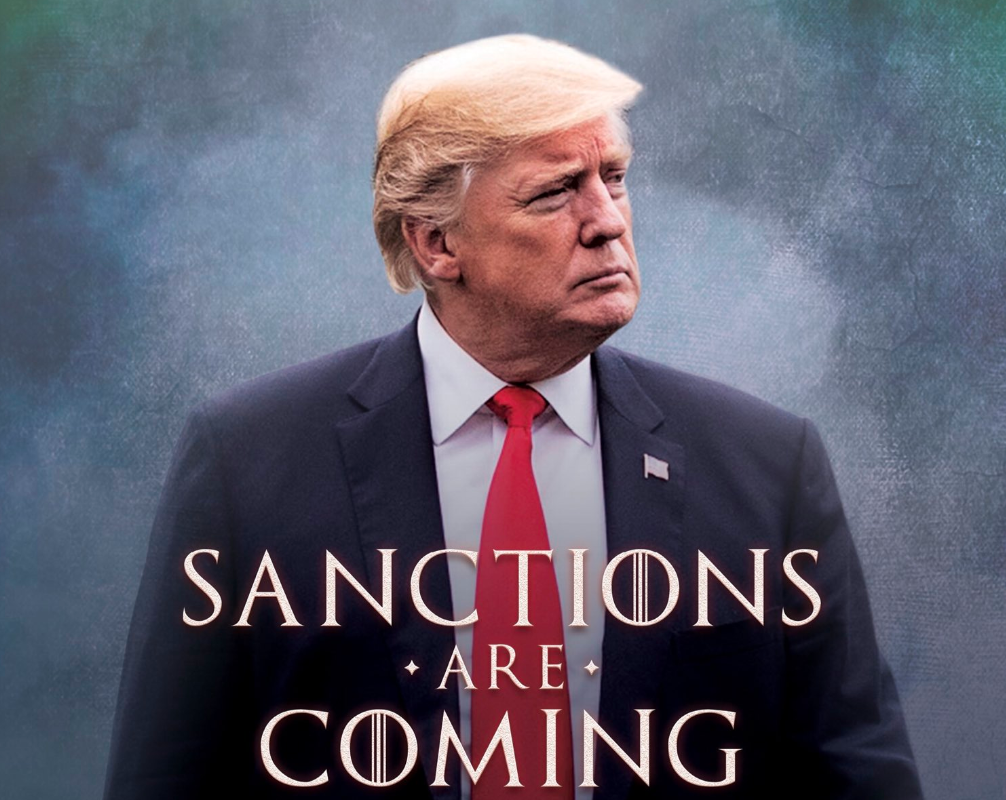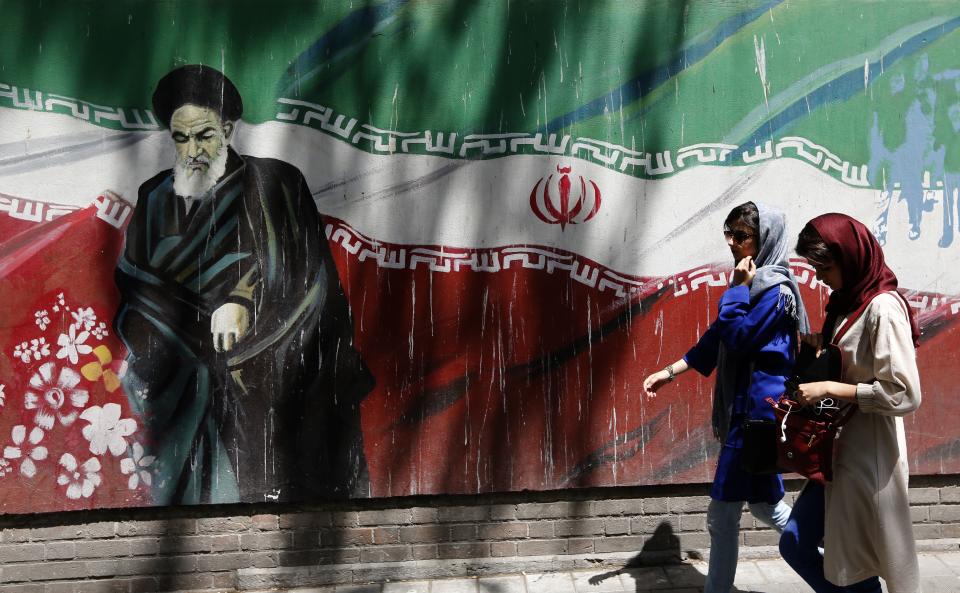Iran sanctions are coming back. Here’s what you need to know

US sanctions against Iran are officially snapping back into place on Monday, erasing America’s 2015 agreement to ease harsh restrictions on the oil-rich country in exchange for limits to its nuclear ambitions.
Donald Trump reminded the world about the sanctions on Friday with a tweeted image showing a photo of him overlaid with text saying “Sanctions are Coming.” The text and typeface riffed off the popular fantasy HBO show, ‘Game of Thrones’.
Trump’s decision in May to reimpose the sanctions has forced companies around the world to scale back their business dealings with Iran for fear of facing harsh punishments from the US, including the threat of being cut off from the American financial system. Companies have cancelled planned projects and stopped buying Iranian oil.
US Secretary of State Mike Pompeo announced on Friday that eight countries would get waivers to keep buying Iranian oil, but did not give specifics, only noting that countries in the European Union would not get waivers. China, the top importer of Iranian crude, is reportedly in discussions to secure a waiver. Turkey’s energy minister Fatih Donmez said his country would get a waiver.
— Donald J. Trump (@realDonaldTrump) November 2, 2018
Why is this happening?
Trump called the Obama-era deal to ease sanctions on Iran “defective at its core” when he pulled out of the agreement in May. The deal had been signed alongside the UK, France, Germany, China and Russia, and was endorsed by the UN Security Council.
“It is clear to me that we cannot prevent an Iranian nuclear bomb under the decaying and rotten structure of the current agreement,” Trump had said.
The decision was met with international resistance and condemnation.
Iran said it was not bothered by the sanctions, which target not only its vital oil and gas sector but also shipping, ship-building and banking industries.
“America will not be able to carry out any measure against our great and brave nation … We have the knowledge and the capability to manage the country’s economic affairs,” Iran’s foreign ministry spokesman Bahram Qasemi said on state TV.

What does this mean for oil prices?
Iran is a crucial oil producer for the world market, exporting about 2.7 million barrels per day in 2018, according to data from the Federal Reserve’s Bank of St. Louis. Iranian exports have nearly doubled since 2015, but they’re expected to plunge back down as sanctions force international buyers to look elsewhere for supplies.
Oil prices initially spiked in the wake of Trump’s announcement as traders worried that a cut to Iranian supplies could lead to global shortfalls. However, the oil-rich nation Saudi Arabia provided assurances that it could fill the supply gaps and many countries have pumped more oil into the markets. The International Energy Agency reported that global oil supplies in September surged to roughly 100 million barrels per day, up about 3% from last year. Production from OPEC’s 15 member countries hit a one-year high in September.
The increased production, along with slipping demand from emerging markets, has dragged down prices in recent weeks.
“Oil prices have sold off sharply … on growing demand concerns and diminishing fears over Iran supply losses,” noted energy experts at Goldman Sachs.
Still, experts expect prices could easily rise again, which could hurt drivers, airlines and a range of energy-dependent businesses.
Crispin Hawes, a director at Idrisi Advisors and an expert in Middle Eastern economics, warned that oil markets will be in “a more fragile place” in the coming months.
“If you take 60% to 70% of Iranian supplies out of the market, prices won’t spike, but it means the balance between supply and demand is thinner,” he told Yahoo Finance UK.
What does it mean for Europe?
European companies had been keen to sign deals with Iran and export their products to Iranian consumers.
The 28 countries in the European Union exported nearly €11 billion ($12.5 billion) in goods to Iran in 2017, roughly 100 times larger than US exports to the country.
But big European businesses have now pulled back from their plans.
“The sanctions dash the hope that exports to Iran could otherwise have risen substantially, so it is a lost opportunity,” said Holger Schmieding, a leading economist at Berenberg. “Indirectly, Europe is being hurt by high oil prices to which US sanctions against Iran have contributed.”
With files from Reuters

